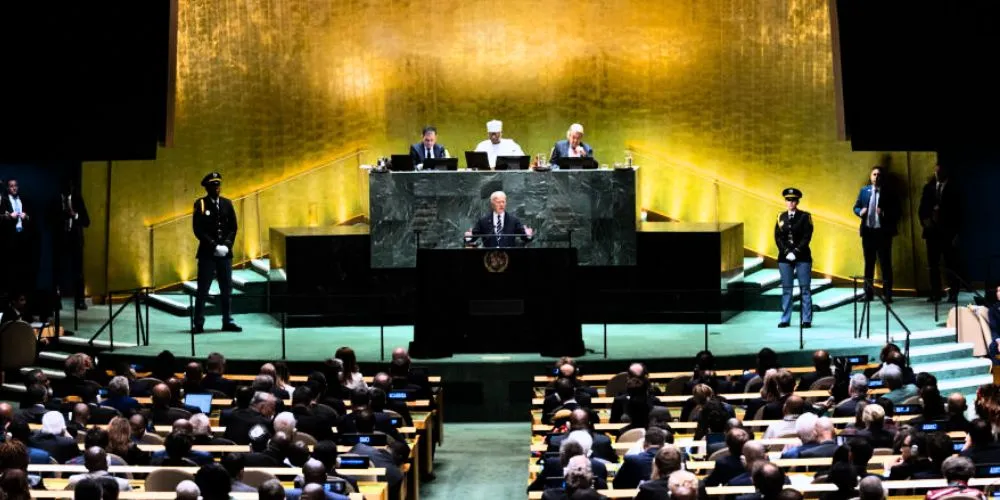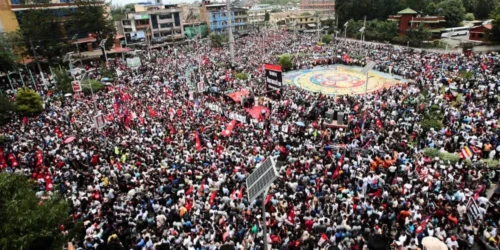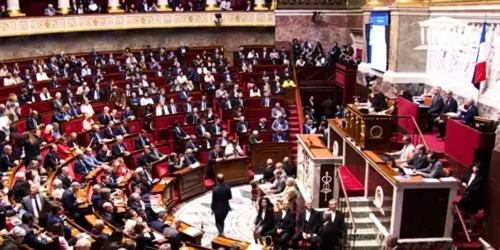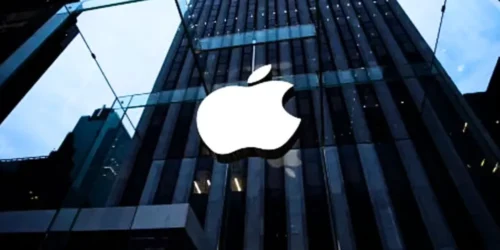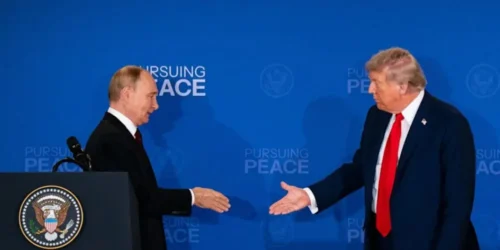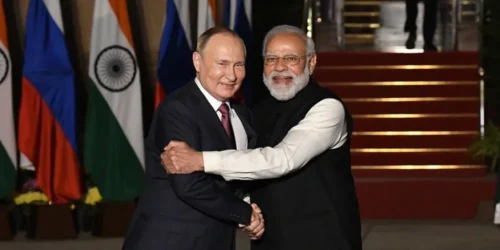Political leadership is not a position. It is a performance. It is a grueling, often thankless, and deeply human drama played out on the loneliest of stages. The leader stands in a harsh spotlight, caught between the relentless demands of the present and the unforgiving judgment of history. The audience is a restless, divided, and fearful public. The script is unwritten, the challenges are unforeseen, and the stakes are nothing less than the fate of a nation.
We are obsessed with the idea of leadership. We crave it, we critique it, and its presence or its absence profoundly shapes us. We compile lists of “leadership traits”—charisma, intelligence, integrity, vision—as if it were a recipe, a simple checklist to be followed. But this approach is a dangerous oversimplification. It mistakes the ingredients for the alchemy.
True political leadership is not a static set of attributes. It is a dynamic and often paradoxical process, a crucible in which character is forged by crisis. It is the rare ability to hold two opposing ideas in one’s mind at the same time: to be both a hard-nosed pragmatist and a soaring idealist; to be a ruthless political operator and an empathetic national pastor; to bend to the popular will and to stand firm against it. It is the art of turning the base metal of fear and division into the gold of common purpose.
This is a case study of that alchemical process. We will not offer a simple “how-to” guide. Instead, we will dissect the performance of leadership under the most extreme pressure imaginable. We will journey into the minds and methods of two of the most consequential leaders in modern history: Abraham Lincoln and Franklin D. Roosevelt. These were men who inherited nations not just in trouble, but on the very brink of collapse—one torn apart by civil war, the other hollowed out by economic and spiritual despair.
By examining how they navigated these existential crises, we can begin to understand the timeless formula of great leadership. It is a formula written not in textbooks, but in the crucible of impossible choices, personal sacrifice, and the profound, world-shaping power of words. This is not just a history lesson. It is an exploration of the enduring human need for meaning, direction, and hope, and the extraordinary individuals who, against all odds, manage to provide it.
The Crucible – The Anatomy of Crisis Leadership
Not all challenges are created equal. A leader might face a budget shortfall, a diplomatic spat, or a close election. These are difficult problems. But a true crisis is something else entirely. It is a crucible moment—a point of intense heat and pressure that threatens to shatter the nation itself. It is a test that doesn’t just ask, “What should we do?” but “Who are we?”
The Civil War was a crucible. The Great Depression was a crucible. The Second World War was a crucible. In these moments, the normal rules of politics are suspended. The very legitimacy of the system is in question. The public is not just anxious; they are terrified. And they look to the leader on that lonely stage not just for policies, but for something far more fundamental: a reason to believe.
Any leader facing such a test must confront two distinct, yet deeply intertwined, challenges.
The Pragmatic Challenge: The Mechanics of Survival
This is the “how” of leadership. It is the brutal, often ugly, business of holding the state together when it is trying to fly apart. It is a world of logistics, resource allocation, and hard-nosed political calculation. It involves:
- Making Impossible Choices: In a crisis, there are no good options, only a series of least-bad ones. A leader must make decisions that will inevitably cause pain and sacrifice, knowing they will be second-guessed and condemned.
- Mobilizing Resources: Whether it’s raising an army, retooling an economy, or distributing aid, a crisis demands a massive mobilization of a nation’s human and material resources. This is a colossal managerial task.
- Building a Team: No leader can do it alone. They must assemble a team of capable, often difficult, personalities. They must manage egos, absorb blame, and delegate authority without losing control.
- Political Maneuvering: Even in a national emergency, politics does not stop. A leader must still build coalitions, negotiate with opponents, and maintain the political capital needed to act decisively. This is the messy, sausage-making side of governance, and it is indispensable.
A leader who fails the pragmatic challenge, no matter how inspiring, will fail. Their vision will crumble under the weight of their incompetence. The state will collapse not for a lack of will, but for a lack of functional machinery.
The Narrative Challenge: The Alchemy of Meaning
This is the “why” of leadership. It is the far more subtle, but equally vital, task of shaping the nation’s understanding of the crisis. Human beings do not live by bread alone; we live by stories. A crisis that is just a meaningless catalogue of suffering is unbearable. A crisis that is framed as a test, a journey, a necessary sacrifice on the path to a better future, can be endured. This is the leader’s role as national storyteller. It involves:
- Defining Reality: The leader must first offer a clear, honest, and credible diagnosis of the problem. They must name the threat and validate the public’s fear and pain.
- Crafting a Vision: They must then offer a compelling vision of the future—a “promised land” on the other side of the crisis. This vision cannot be a vague platitude; it must be a believable destination that makes the present suffering worthwhile.
- Forging a Common Identity: A crisis often breeds division, scapegoating, and finger-pointing. The narrative leader must constantly weave a story of “us,” reminding a fractured people of their shared history, their shared values, and their shared destiny.
- Calling for Sacrifice: The leader must ask the public to do hard things—to enlist, to ration, to pay higher taxes, to endure hardship. They can only do this successfully if they have framed that sacrifice not as a burden, but as a noble contribution to the great national story.
A leader who fails the narrative challenge, no matter how managerially competent, will find their people unwilling to follow. The machinery of the state may be functional, but the national spirit will be broken. True crisis leadership requires a mastery of both the pragmatic and the narrative. It requires the skills of both the master mechanic and the master poet. And few have ever embodied this duality more completely than a gawky, self-taught lawyer from the American frontier.
The Rail-Splitter as Nation-Builder: Abraham Lincoln and the Crisis of Union
When Abraham Lincoln took the oath of office on March 4, 1861, he inherited a house not just divided, but already collapsing. Seven states had already seceded from the Union. The federal government was a hollowed-out shell, its army scattered, its treasury empty. He was a man of the frontier, derided by the East Coast establishment as a crude, ugly, and unprepared “baboon.” He had won the presidency with less than 40% of the popular vote. No American leader has ever come to power in a more perilous moment.
The story of his presidency is the story of a man who grew into the colossal demands of his time, mastering both the brutal mechanics of war and the sublime poetry of national purpose.
Lincoln the Pragmatist: The Unsentimental Statesman
The popular image of Lincoln is “Honest Abe,” the gentle, melancholic soul who agonized over the war’s human cost. This is true, but it is only half the truth. Lincoln was also a shrewd, calculating, and sometimes ruthless political operator who understood that saving the Union required a will of iron.
- The Willingness to Evolve: Lincoln was not an abolitionist when he came to office. His primary stated goal was to preserve the Union, not to end slavery. He famously wrote, “If I could save the Union without freeing any slave, I would do it, and if I could save it by freeing all the slaves, I would do it.” This was not moral equivocation; it was a pragmatic recognition of political reality. He knew that an immediate abolitionist crusade would drive the crucial border states into the Confederacy, making a Union victory impossible. His journey toward the Emancipation Proclamation was a slow, deliberate evolution, dictated by the twin necessities of military strategy and shifting public opinion. He issued it only when he was convinced it was not just morally right, but politically and militarily necessary to win the war.
- Mastery of Men: The Team of Rivals: A lesser man, upon winning the presidency, would have surrounded himself with loyalists. Lincoln did the opposite. He appointed his chief political rivals—William Seward, Salmon P. Chase, and Edward Bates, all of whom considered themselves his superiors—to the most powerful positions in his cabinet. He understood that in a national crisis, he needed the best and most ambitious minds in the country, even if they despised him. He absorbed their insults, managed their massive egos, and harnessed their talents for the good of the Union. This was an act of supreme self-confidence and strategic genius.
- The Iron Fist: Lincoln was no tyrant, but he was willing to stretch the Constitution to its breaking point to save the nation. He unilaterally suspended the writ of habeas corpus, allowing for the arrest and detention of suspected Confederate sympathizers without trial. He blockaded Southern ports and spent money without congressional appropriation. He understood that the rigid application of peacetime laws amid a rebellion was a form of national suicide. He acted and dared his critics to stop him. He also demonstrated a ruthless will in his management of the war. He cycled through a series of cautious, incompetent generals—McClellan, Burnside, Hooker—until he found the man who understood the brutal arithmetic of victory: Ulysses S. Grant, a general who was willing to fight, and win, no matter the cost.
Lincoln the Poet: The Alchemist of Words
If Lincoln’s pragmatism held the Union together, his power with language gave that struggle its enduring meaning. In an age without radio or television, Lincoln used the written word—his public letters, proclamations, and speeches—to shape the soul of the nation. He was, without question, America’s greatest political poet.
- The Gettysburg Address: It is perhaps the most perfect piece of political prose ever written. In just 272 words, delivered at the dedication of a cemetery, Lincoln performed an act of narrative alchemy. He did not dwell on the grisly details of the battle. Instead, he reframed the entire meaning of the war. He connected the struggle of the soldiers to the nation’s founding in 1776, arguing they were fighting to ensure that the original promise of a nation “conceived in Liberty, and dedicated to the proposition that all men are created equal” would not perish. He transformed a bloody civil war into a universal struggle for the future of democracy itself. He gave the suffering a purpose.
- The Second Inaugural Address: Delivered just a month before the war’s end, this speech is Lincoln’s ultimate sermon. With victory in sight, the nation expected a triumphant, gloating speech. Instead, Lincoln delivered a profound meditation on guilt, divine will, and reconciliation. He implicated both North and South in the sin of slavery, suggesting the war was God’s terrible judgment upon the entire nation. He then pivoted to a vision of healing, ending with the immortal words: “With malice toward none; with charity for all… let us strive on to finish the work we are in; to bind up the nation’s wounds.” It was a speech designed not to celebrate a victory, but to lay the moral foundation for a difficult peace.
Lincoln’s leadership demonstrates the profound power of this dual mastery. His pragmatic, often ruthless, actions saved the physical body of the United States. But his words saved its soul, transforming a war for territory into a struggle for ideals that continues to define the nation to this day.
The Patrician as People’s Champion: Franklin D. Roosevelt and the Crisis of Confidence
Eighty years after Lincoln faced a crisis of political disintegration, Franklin D. Roosevelt faced a crisis of social and psychological collapse. The Great Depression was more than an economic downturn; it was a national trauma. A quarter of the workforce was unemployed. Banks were failing by the thousands. Farmers were losing their land. In the breadlines and shantytowns, a terrifying question was being asked: Had the American experiment of capitalism and democracy failed? The crisis FDR inherited was not a shooting war, but a war against despair.
FDR, the charming, silver-spooned patrician from New York, seemed an unlikely champion for the common man. Yet, paralyzed from the waist down by polio, he possessed a deep well of empathy and an unshakeable belief in the power of action. He would use these gifts to fundamentally remake the relationship between the American people and their government.
FDR the Pragmatist: The Master of Bold, Persistent Experimentation
FDR came to office with no single, coherent ideology for ending the Depression. His guiding philosophy was simple and radical: do something. In his nomination speech, he declared, “The country needs and, unless I mistake its temper, the country demands bold, persistent experimentation. It is common sense to take a method and try it: If it fails, admit it frankly and try another. But above all, try something.”
- The Hundred Days: The first few months of his presidency were a whirlwind of activity unlike anything seen before. He declared a bank holiday, pushed through emergency banking reform, and then unleashed a torrent of new agencies and programs known as the New Deal. The Civilian Conservation Corps (CCC) put young men to work in national parks. The Tennessee Valley Authority (TPA) brought electricity and development to one of the nation’s poorest regions. The Works Progress Administration (WPA) would go on to build roads, schools, and bridges across the country. Not all of these programs were successful. Some were inefficient; others were later found unconstitutional. But that wasn’t the point. The point was action. The flurry of activity broke the nation’s psychological paralysis. It sent a powerful message that the government was no longer a passive observer but an active participant in the fight for recovery.
- The Commander-in-Chief: This same pragmatic, action-oriented approach would define his leadership during World War II. Long before the attack on Pearl Harbor, Roosevelt saw the existential threat posed by Nazi Germany. While the country was staunchly isolationist, he skillfully and incrementally maneuvered the nation toward supporting the Allies. He pushed through the controversial Lend-Lease Act, a program to supply Great Britain with war materials, brilliantly framing it with the simple analogy of lending a neighbor a garden hose to put out a fire. He declared America would be the “arsenal of democracy,” and he oversaw the staggering mobilization of the U.S. economy that ultimately powered the Allied victory.
- Mastery of the System: Unlike Lincoln, the outsider, FDR was a master of the political system. He was a skilled negotiator who knew how to manage Congress, how to build coalitions, and how to use the levers of party politics to achieve his goals. He was charming when he needed to be and ruthless when he had to be.
FDR the Communicator: The Voice of Reassurance
Suppose FDR’s pragmatic experimentation provided the substance of his leadership, his skill as a communicator provided its soul. He understood that the primary disease afflicting the nation was fear. And in his first inaugural address, he confronted it directly with the unforgettable line: “The only thing we have to fear is fear itself.”
- The Fireside Chats: FDR’s greatest communicative innovation was the “fireside chat.” Using the new, intimate medium of radio, he spoke directly to the American people in their living rooms. His tone was not that of a distant, lecturing president, but of a calm, reassuring friend. He explained complex issues—like banking reform—in simple, accessible language. “It is safer to keep your money in a reopened bank than under the mattress,” he told them. The effect was magical. The day after his first fireside chat, the banks reopened, and people lined up not to withdraw their money, but to deposit it. He had used the power of his voice to restore the single most important commodity in any economy: trust.
- Infectious Optimism: Roosevelt’s personal story was one of triumph over adversity. The man who could not walk projected an aura of boundless energy and good cheer. His jaunty smile, his upturned cigarette holder, his hearty laugh—all of it was a deliberate performance designed to counteract the nation’s despair. He radiated confidence, and that confidence was contagious. While Lincoln drew strength from his melancholy, FDR drew strength from his optimism. Both, in their own time, were precisely what their people needed to see.
FDR’s leadership saved American capitalism from itself. He did not solve the Depression with any single policy, but he restored the nation’s faith in its ability to solve its problems. He fundamentally altered the social contract, establishing the principle that the federal government has a responsibility to provide a basic safety net for its citizens. This legacy endures in programs like Social Security. He was the ultimate narrative leader, the man who convinced a broken nation to believe in itself again.
The Alchemist’s Formula – Synthesizing the Lessons of Greatness
Lincoln and Roosevelt were vastly different men, separated by time, temperament, and style. One was a melancholic, self-taught poet of the frontier. The other was a cheerful, silver-tongued aristocrat of the Eastern establishment. Yet, when we dissect their leadership during their respective crucibles, a common formula emerges. These are the core, timeless elements of great political leadership.
A Moral Compass Married to Political Pragmatism
This is the essential duality. Neither Lincoln nor FDR was a rigid ideologue. They were master politicians who understood the art of the possible. They compromised, they cut deals, and they adapted their positions to changing realities. But this pragmatism was always tethered to a clear moral compass. For Lincoln, it was the preservation of the Union and the eventual triumph of liberty. For FDR, it was the dignity of the common person and the defense of democracy. They knew how to maneuver in the muddy trenches of politics without ever losing sight of the star they were steering by.
The Narrative Imperative: Leadership as Storytelling
Both men understood instinctively that leadership is not just about making decisions; it’s about giving those decisions meaning. They were master storytellers who could weave a compelling narrative of national purpose. Lincoln framed the Civil War as a test of democracy’s survival. FDR framed the New Deal as a war against economic despair and World War II as a struggle for the “four freedoms.” They gave their people a story to be a part of, transforming sacrifice from a burden into a contribution.
An Authentic Connection to the People
In their ways, both leaders forged a deep, almost mystical bond with the public. Lincoln did it through the solemn power of his written words and his visible, weary empathy. He seemed to carry the grief of the nation personally. FDR did it through the warm, reassuring intimacy of the radio, creating the illusion of a personal conversation with millions. They made the people feel seen, heard, and understood. This was not a cheap public relations trick; it was the foundation of the trust they needed to lead.
The Courage to be Unpopular and to Act
Both men made decisions that were fiercely controversial and politically risky. Lincoln’s suspension of habeas corpus and issuance of the Emancipation Proclamation were condemned by many in the North. FDR’s Lend-Lease Act was seen as a betrayal by isolationists. They understood that a leader’s job is not to follow the polls, but to lead public opinion toward a necessary, if unpopular, course of action. They possessed what FDR called “the courage to be patient, the courage to be audacious.”
Resilience Forged in a Personal Crucible
It is no coincidence that both men were shaped by profound personal suffering. Lincoln battled lifelong depression and buried two young sons. FDR’s bout with polio at age 39 left him permanently paralyzed. This personal pain did not break them; it forged them. It gave them a deep, humbling empathy for the suffering of others and a steely resolve to overcome adversity. Their crucibles prepared them for their public ones.
Conclusion: The Empty Stage – Leadership in the 21st Century
The world of Lincoln and FDR seems distant now. The nature of our crises has changed. We are less likely to face a single, cataclysmic event like a civil war or a global depression. Instead, we face chronic, slow-burning crises: the creeping catastrophe of climate change, the corrosive effects of economic inequality, the digital cancer of misinformation, and the deep, bitter political polarization that paralyzes our ability to act.
The tools of leadership have changed, too. Lincoln reached his people through the printed word. FDR mastered the airwaves. Today’s leaders must navigate a fractured, chaotic media landscape of 24-hour cable news, social media echo chambers, and algorithm-driven outrage. Forging a common national narrative—a story of “us”—is exponentially more difficult when we can no longer agree on a common set of facts.
And yet, the fundamental human need for leadership remains. The stage, though now cluttered with digital noise, is still there. The public, though now more divided and cynical, still yearns for direction, for meaning, and for a reason to hope.
The lessons from Lincoln and Roosevelt are not relics of a bygone era. They are a timeless reminder of what is required. We still need leaders who can marry moral vision with political skill. We still need leaders who can tell a compelling story about our shared future, a story that is bigger than our petty divisions. We still need leaders who can connect with our fears but appeal to our better angels. And we still need leaders who have the raw courage to do what is right, not just what is popular.

